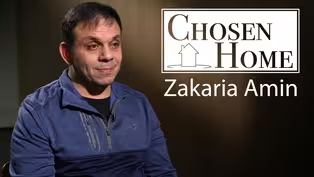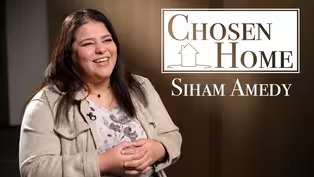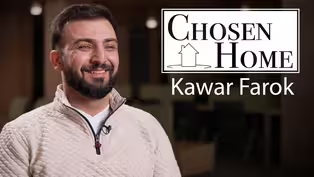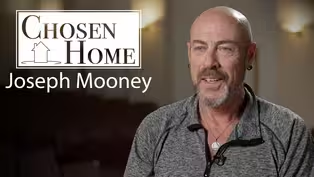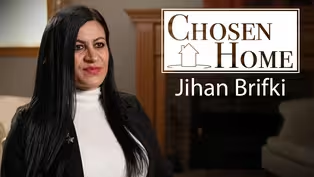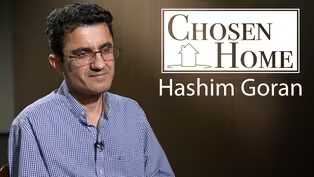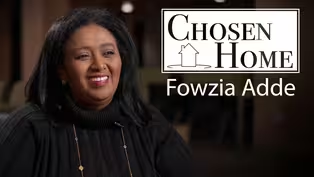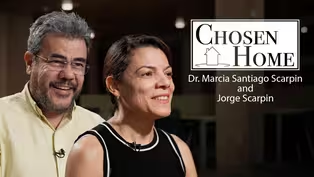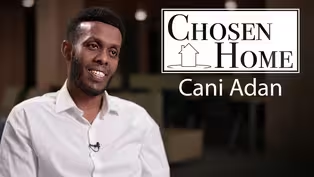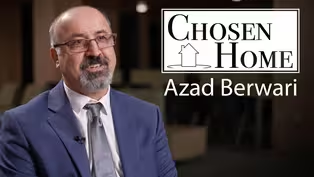Chosen Home: Hashim Goran
Clip | 7m 45sVideo has Closed Captions
Hashim Goran shares his immigration story.
Hashim Goran shares his story of the hardships he faced under the rule of Saddam Hussein in Iraq to becoming an interpreter for US forces and finding a place to call home in Moorhead, MN.
Problems playing video? | Closed Captioning Feedback
Problems playing video? | Closed Captioning Feedback
Chosen Home: Hashim Goran
Clip | 7m 45sVideo has Closed Captions
Hashim Goran shares his story of the hardships he faced under the rule of Saddam Hussein in Iraq to becoming an interpreter for US forces and finding a place to call home in Moorhead, MN.
Problems playing video? | Closed Captioning Feedback
How to Watch
is available to stream on pbs.org and the free PBS App, available on iPhone, Apple TV, Android TV, Android smartphones, Amazon Fire TV, Amazon Fire Tablet, Roku, Samsung Smart TV, and Vizio.
- My name is Harshim Goran.
I live in Moorehead, Minnesota since 2012.
I was born and and raised in small town couple mile north of Erbil City, which is the capital of Kurdistan region in Iraq.
That was back in 1981.
I was from a family of six brothers, one sister, and parents.
The 1980s was kind of devastated due to Iraq-Iran war that lasted for eight years.
Beside the Iraqi-Irani war there was a genocide against Kurds.
In 1988, a Kurdish city called Halabja was attacked by chemical weapon by Iraqi army, which killed about 5,000 people, men, women, children.
Then 1990 came where Iraqi army attacked and invaded Kuwait, which resulted in Gulf War.
That was led by US forces, and then Iraqi army got defeated and retreated from Kuwait.
After the Kuwait invasion was over, then in 1991, uprisal started from north and south.
From South was the Shia, those opposing Saddam's regime, and in north, the Kurdistan region, which was Kurds.
After Iraqi regime attacked to regain those areas, after that retaliation, then it led us to flee again towards the mountainside.
Some sources states that 90% of Kurds fled toward Iran and Turkey.
Myself and my family, we headed towards Iran.
I remember that it took us probably about a week or so 'till we got to Iran.
We saw many, many people on our way.
It was cold, people were starving to death, and eventually we made it to Iran.
We stayed in the refugee camp probably about two to three months, if I remember well.
It was tough, not easy, it wasn't the life condition that we used to have living in under the tent.
It was too cold, and we lost many people.
One of my niece got sick, dehydrated, and eventually died in Iran.
She was, I think about a week or two when we escaped to the mountain.
It wasn't easy.
Then after long negotiation between Kurdish leaders with central government, eventually they got into an agreement that every Kurds can return their home safely.
Then we returned, I think it was either July of 1991 or August, I don't quite remember the month.
When we returned, nothing was like before.
It was like, almost like a ghost town.
Then from 1991, economic sanction against Iraq, which led to starvation.
It was very hard for every single Kurds, and to Iraqis in general.
If not because people were nice to each other and sharing food, it was gonna be even worse than what we witnessed and what we experienced.
Then people started to build back what we kinda went through, the damages that had happened before.
In 2003, we had another big event, which was Operation Iraqi Freedom that was led by US military and led to removing Saddam from the power.
It was something that everybody was dreaming for, but in 2003 and 2004, I tried hard to learn English, and in 2005 I started a job with US Army as a translator.
We were kind of experiencing sniper attack, mortar attack, IEDs, explosives, and even suicidal bomb.
It was tough experience that we went through, but I'm proud that I could do something to help rebuild Iraq after removing the former regime.
In 2012, as a privilege of what we have done, I was offered a special immigrant visa for myself and my family.
My wife, my two young children, oldest was three years, youngest was three months, and I were moved to Moorhead, Minnesota.
Of course, it's not easy when you move to different country, different cultures, you know, everything was different around us.
The language is different, the people are different.
Getting a job was not easy for me, despite the experiences that I had.
It was tough to get a job, I was, you know, feeling that I was kind of discriminated against for whatever reason.
But later on I was able to continue with my education, I started with a technical college and earned two years of associate degree in business at technical college in 2016.
Then I transferred to MSUM Moorhead and complete my bachelor's in Business administration, emphasis in management.
Right now, I'm a an MFIB job counselor with a rural Minnesota SEP slash career force in Moorehead, and also I've been helping my community and whoever needed help in and outside of my office with whatever I could.
To be honest, if not because of the war and some other problems that Iraq went through, living in Iraq was easier, you know?
The way of life.
But it's not safe.
I'm glad that we chose a safer area for our kids.
Like, my kids and my family have better future living here, away from those that, those experiences that I went through in Iraq.
(peaceful music) - [Announcer] Funded by The Minnesota Arts and Cultural Heritage Fund with money from the vote of the people of Minnesota on November 4th, 2008.
And by the members of Prairie Public.
Video has Closed Captions
Clip | 6m 13s | Zakaria Amin shares his immigration story. (6m 13s)
Video has Closed Captions
Clip | 4m 36s | Siham Amedy shares her immigration story. (4m 36s)
Video has Closed Captions
Clip | 6m 18s | Kawar Farok shares his immigration story. (6m 18s)
Video has Closed Captions
Clip | 4m 24s | Joseph Mooney shares his immigration story. (4m 24s)
Video has Closed Captions
Clip | 5m 59s | Jihan Brifki shares her immigration story. (5m 59s)
Video has Closed Captions
Clip | 7m 45s | Hashim Goran shares his immigration story. (7m 45s)
Video has Closed Captions
Clip | 6m 14s | Fowzia Adde shares her immigration story. (6m 14s)
Chosen Home: Dr. Marcia Santiago Scarpin and Jorge Scarpin
Video has Closed Captions
Clip | 7m 25s | Dr. Marcia Santiago Scarpin and Jorge Scarpin share their immigration story. (7m 25s)
Video has Closed Captions
Clip | 5m 19s | Cani Adan shares his immigration story. (5m 19s)
Video has Closed Captions
Clip | 5m 46s | Azad Berwari shares his immigration story (5m 46s)
Providing Support for PBS.org
Learn Moreabout PBS online sponsorshipSupport for PBS provided by:
